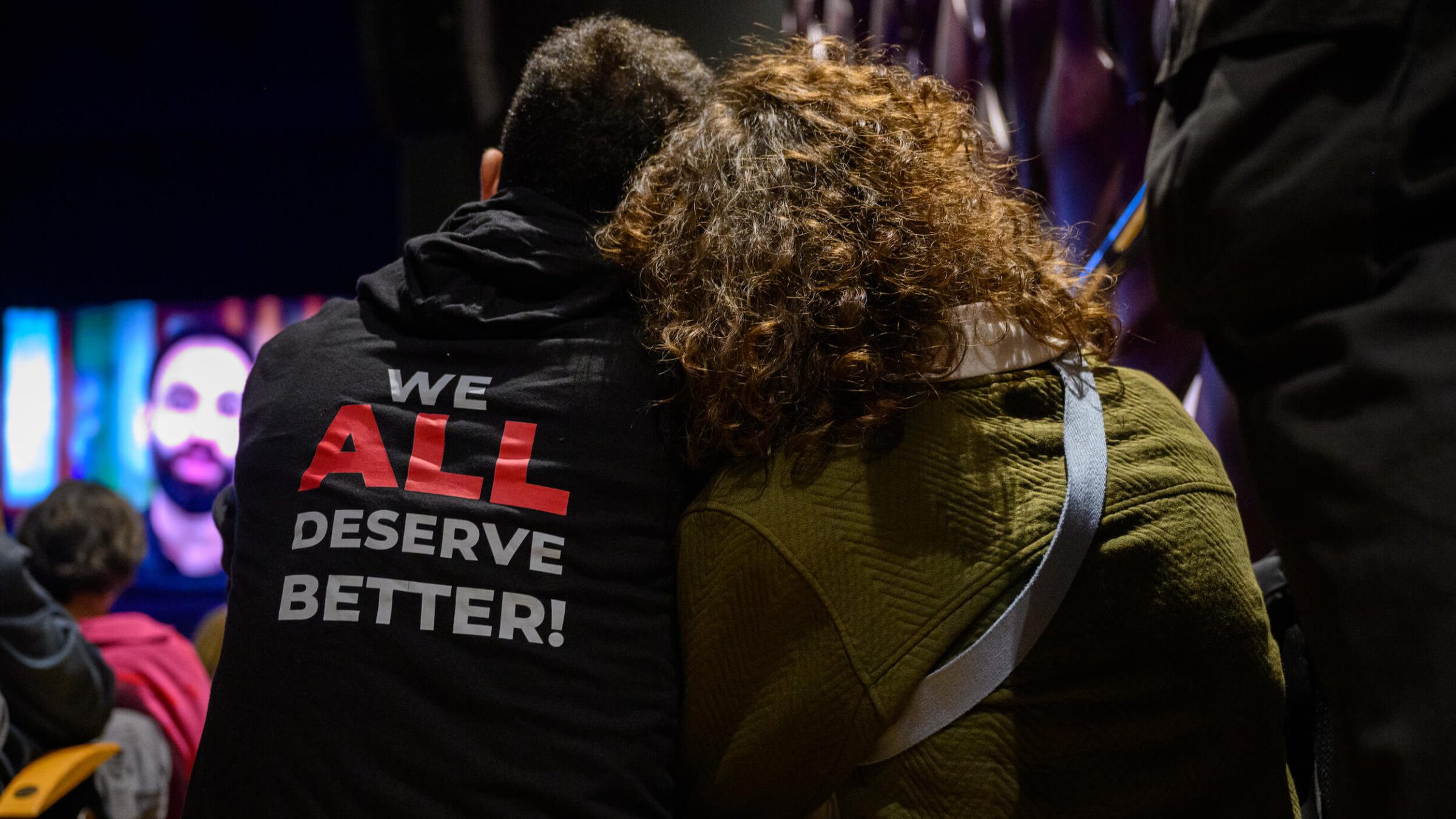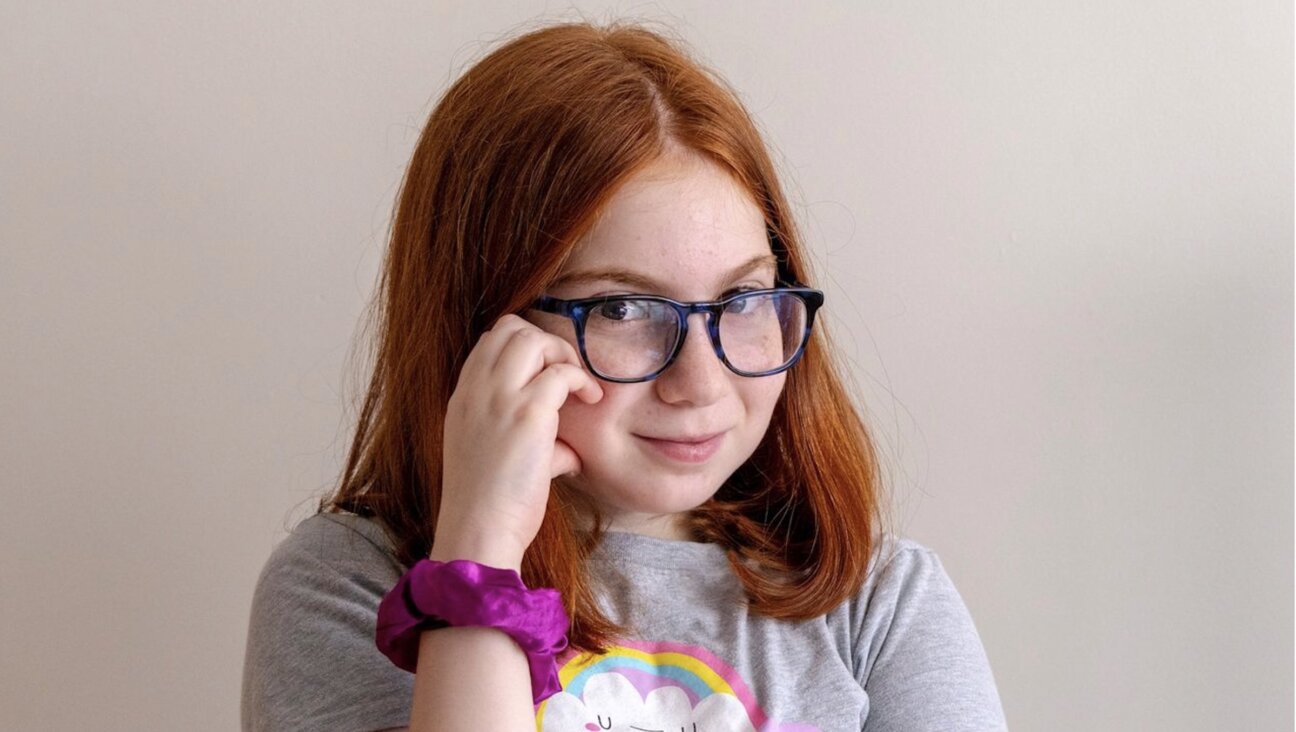The secret cost of Israel’s wars ravaged my family. It’s only getting worse.
This Yom HaZikaron, we have to acknowledge an undercovered menace to Israel’s soldiers

People embrace at the 20th annual Israeli- Palestinian Joint Memorial Ceremony on Erev Yom Hazikaron at Tel Aviv’s Anis Cultural Center on April 29. Photo by Alexi Rosenfeld/Getty Images
It’s Yom HaZikaron — Israel’s Memorial Day. And as Israel’s longest post-independence war drags on in Gaza, it’s time we talked about one of the most devastating but least acknowledged costs of Israel’s militarization: The vast impact of widespread post-traumatic stress disorder.
My life has been shaped by a personal tragedy I attribute to PTSD: my father’s death by suicide, when he was 40 years old and I was 16. He was never diagnosed, after serving in the Yom Kippur War, in part because at the time, trauma was spoken of only in relation to soldiers who had served on the front lines or survived captivity.
We still lack concrete information on how common stories like my father’s are. We know that suicide rates in the Israel Defense Forces and reserves have spiked, hitting a 13-year high in March. But many deaths like that of my father, of former soldiers struggling after completing active service, go unreported, and few are recognized by the state as casualties of war.
My father lost his best friend on the first day of the Yom Kippur War in 1973, when he was 21 years old. He was called up in the middle of that war, and assigned to a unit searching for missing soldiers — traumatizing work that had him spend weeks in the Golan Heights and Egypt, sifting through the remnants of battlefields, trying to determine whether bodies might still be buried there.
Years later, during the First Lebanon War in 1982, he became consumed with finding more information about missing soldiers in Lebanon — and got himself into serious trouble for doing so without authorization.
I became a peace activist, but it took me three decades to realize I chose that route not only for my children — and for all the children of this region — but also for my father. And for my mother, who shouldered his pain with strength and love, year after year.
Amid this seemingly endless war in Gaza, it is clear to me and my fellow activists that there is a growing, silent wave of psychological injury that few are willing to name.
Soldiers are returning from Gaza with invisible wounds — the psychological pain from having seen or done things with which they cannot fully reckon. Combat medics are traumatized by the horrors they’ve seen while evacuating the wounded and the dead. Young soldiers knocking on doors in Israel to deliver the worst news imaginable — that someone’s beloved child has been killed in combat — are carrying so much pain.
These experiences leave deep scars. Not only on the soldiers, but on all of us.
This war is ruining lives on both sides. In Gaza, tens of thousands of Palestinians — many of them civilians, including thousands of children — have been killed. Survivors carry immense trauma, grief and rage. The damage grows deeper every day. The longer the war continues, the more we lose — not only in bodies, but in minds and hearts. Not only physically, but morally.
This Yom HaZikaron, it’s time to say: It must stop. The devastation of today is already too much. That which we will see in the future, as we see the effects of society-wide PTSD play out, will make things that much worse.
We must reach an agreement that brings the hostages home and ends this war. Only then can we begin to heal.
















